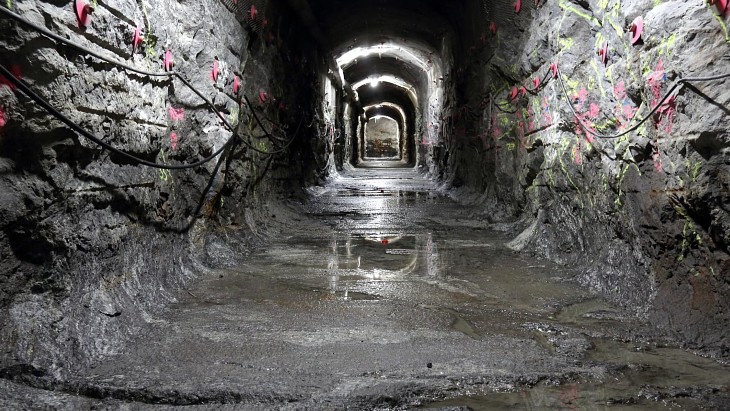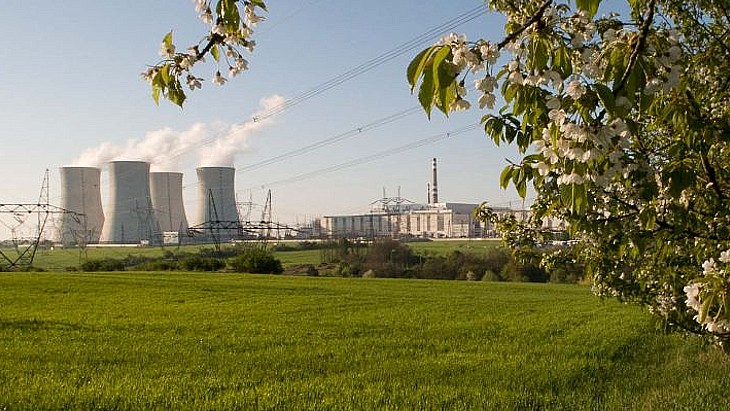As D&D projects increase in number worldwide, related challenges and opportunities are appearing for the delivery of first-class projects and innovative business models that ensure the remediation of nuclear sites and the deployment of the most effective waste management tools. These market conditions are changing the D&D paradigm.
Continuous improvement
With more than 70 years of operational experience and societal contribution, about half of the 600 early-generation nuclear power, research and recycling facilities around the world are already at the D&D stage and the other half are approaching it. In other words, this final phase for a nuclear asset is an industry reality being responsibly managed by owners. In addition to the scheduled closures, the global D&D market is being boosted for the next 10 years by the management of the end-of-life of nuclear power plants. This boost however is based on a complex combination of political and economic factors.
As of December last year, 172 nuclear energy facilities had been permanently shut down, of which 72 are under decommissioning and more than 20 have had their licences terminated. Facilities are closing in large part because of the ageing of the worldwide nuclear fleet and, as such, about 70 additional units are estimated to cease operations by 2025. Other strong influences on the D&D decision-making process are the national regulatory environments, the reactors' characteristics and the operators' financial contexts. These all affect a D&D project's planning and costs. According to the OECD Nuclear Energy Agency, reactor D&D cost estimates per kWe can vary by a factor of 3.
Despite these variances and uncertainties, the growing list of ongoing or completed nuclear power plant D&D projects demonstrates that the techniques, equipment, processes and skills are constantly improving. Of key importance is the industry's conscious accumulation of feedback and lessons learned to deliver increased performance from one project to the next. As a natural consequence, the costs, planning and risks are becoming more predictable and are therefore being better controlled. The result is that the total nuclear power plant D&D cost estimate is now increasingly stable. This means that, for D&D specialists, today's experience is the path to tomorrow's ever-more successful projects.
Pioneers shaping the market
Germany and the United States are the pioneers in nuclear power plant D&D and therefore the market leaders, with multiple projects ongoing or completed. In Germany, 27 plants have so far been retired from operations and are in the D&D phase. Of these, 15 sites have final dismantling status and three facilities have terminated licences. In the United States, 37 units have been shut down, including seven with Independent Spent Fuel Storage Installation-only status and three with terminated licences. Although these two countries have a significant number of shutdown reactors, they have very different drivers and characteristics.
Germany, where the government reacted to the Fukushima Daiichi accident with a policy to phase out nuclear energy, has adopted a voluntary approach to D&D, with immediate dismantling operations under way. This approach by utilities is conditioned by an increased focus on costs. The operator's approach is to self-perform as much as possible, thus smoothing their social transition and avoiding placing the burden of D&D costs on the public.
On the other hand, the engagement of local and international D&D specialists in this market has created a very competitive environment where partnerships are important to offering the most cost-efficient team for each step of the process and minimising the amount of waste to be disposed of. This is having a positive impact on D&D project performance because, in creating a highly competitive market, the significant experience of accomplishing the complete phase-out policy by 2022 means these D&D specialists will be able to take their skills abroad and compete for the next wave of D&D projects in Europe and Asia.
In the United States, D&D planning is volatile because of a mix of political, social and economic parameters that all have indirect impacts on the final kWh cost. These parameters have even resulted in the postponement or cancellation of scheduled nuclear shutdowns, as seen with the Clinton, Byron and Fitzpatrick plants. By re-examining the closure and D&D decisionmaking in the light of societal impacts, the American situation has renewed the debate of the benefits of nuclear energy in tackling climate change and in boosting local economies through jobs and taxes.
The D&D business models proposed by specialists are thus evolutionary. The majority of recent decommissioning contract awards have been under a model that combines the acquisition of the nuclear asset and managing the decommissioning, including used fuel and waste management. Through accelerated decommissioning, reduced costs and risk transfer, these business models are increasingly attracting the interest of utilities. Even if these solutions are today very specific to the US market, they are already enhancing project execution and industrial experience in D&D projects globally. Finally, these business models demonstrate the maturity of D&D specialists in the management of asset risks, which have been removed from the utilities’ balance sheets.
Creating value
Whatever the differences between these two market leaders in D&D, projects in Germany and in the United States are equally contributing to operational excellence and optimised waste management worldwide. In delivering core D&D operations in Germany since the late 1970s and the United States since the 1990s as well as used fuel and waste management solutions, Orano has benefitted from lessons learned. In addition, partnerships built in Germany and North America, including the US joint venture Accelerated Decommissioning Partners with NorthStar, have been a key success factor.
As D&D is for utilities a financial burden of several hundreds of millions of euros in their balance sheet, it is by definition a cost-driven market. Though a major challenge for the nuclear industry and with increasing demand, D&D specialists are developing and implementing cost-driven innovations to improve project execution. With innovative thinking and adaptation in the German and American markets, D&D specialists have not only expanded their solutions and experience, but have also designed new competitive standards and business models. Leveraging these assets worldwide allows Orano to address the nuclear industry’s challenges wherever they may arise.
Philippe Knoche
France's Orano, formerly called Areva, is focused on nuclear materials development and waste management and its activities encompass uranium mining, conversion and enrichment, used fuel recycling, nuclear logistics, decommissioning and engineering.







_53514_33880.jpg)




